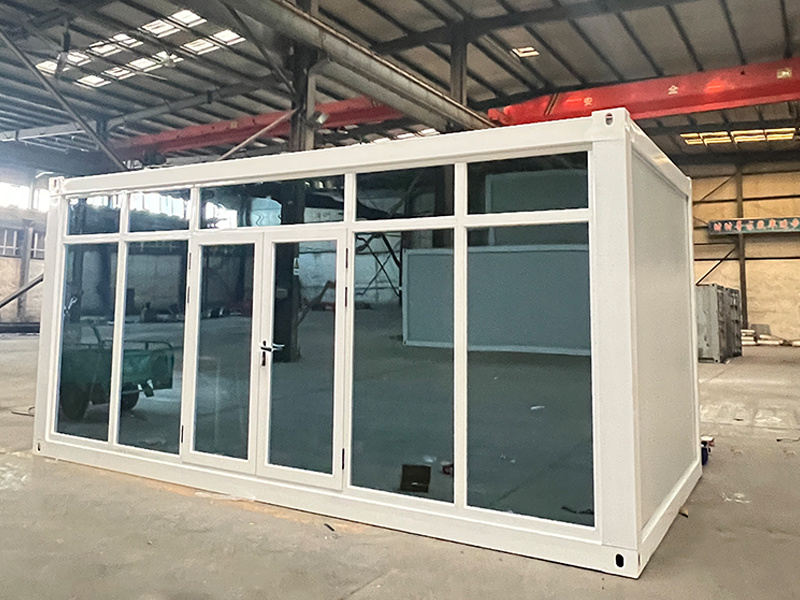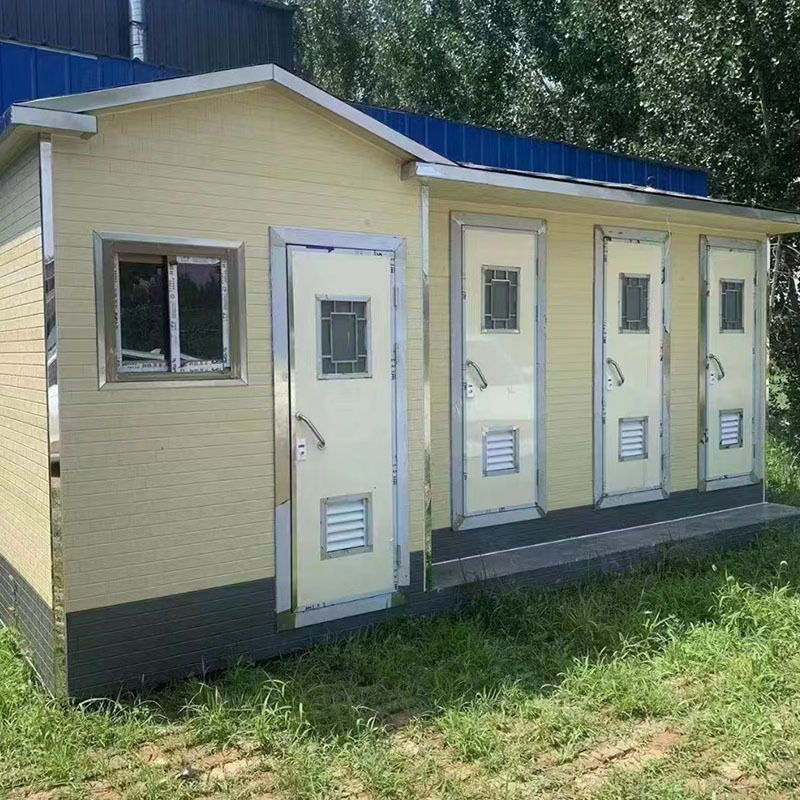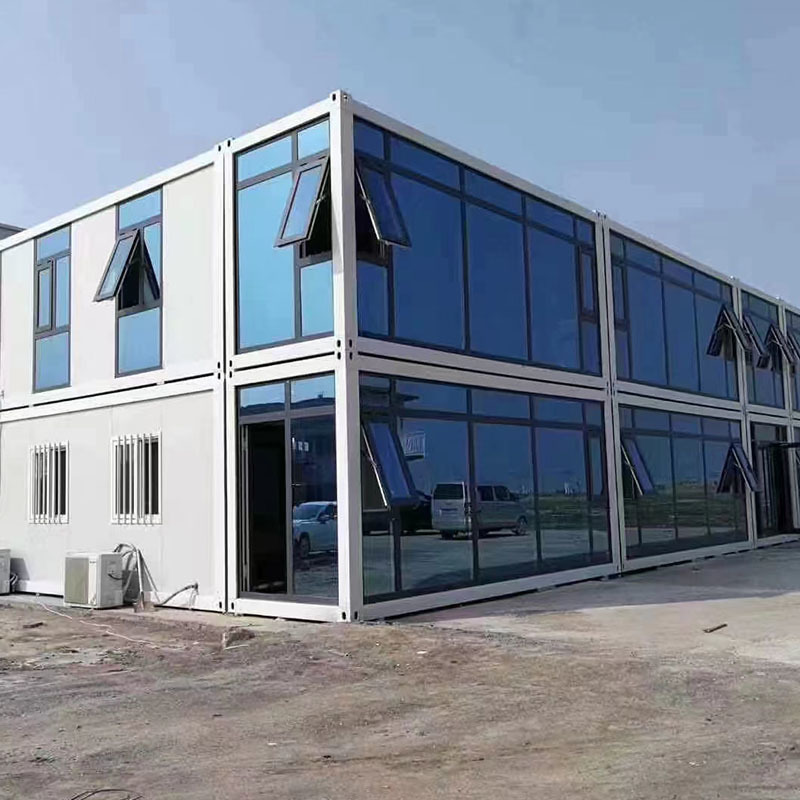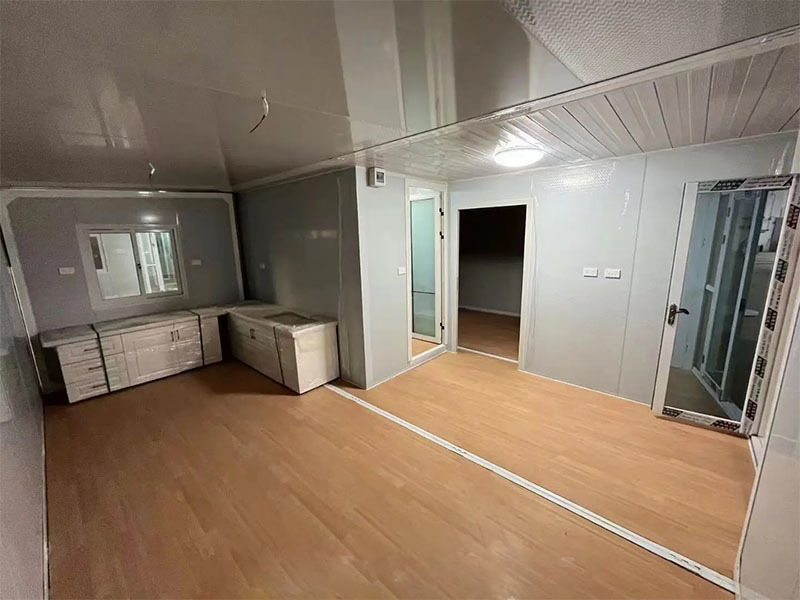Exploring the Benefits of Movable Homes for Modern Living
Release Time:
Apr 15,2025
Exploring the Benefits of Movable Homes for Modern Living Table of Contents 1. Introduction to Movable Homes 2. Understanding Movable Homes: What Are They? 3. The Advantages of Movable Homes 3.1 Flexibility in Location 3.2 Cost-Effectiveness and Affordability 3.3 Sustainable Living 4. The Design and Customization of Movable Homes 4.1 Innovative Designs and Layouts 4.2 Smart Hom
Exploring the Benefits of Movable Homes for Modern Living
Table of Contents
1. Introduction to Movable Homes
2. Understanding Movable Homes: What Are They?
3. The Advantages of Movable Homes
3.1 Flexibility in Location
3.2 Cost-Effectiveness and Affordability
3.3 Sustainable Living
4. The Design and Customization of Movable Homes
4.1 Innovative Designs and Layouts
4.2 Smart Home Technology Integration
5. Challenges of Movable Homes and How to Overcome Them
6. Legal Considerations and Regulations
7. Community and Lifestyle in Movable Homes
8. Conclusion
9. FAQs about Movable Homes
1. Introduction to Movable Homes
Movable homes are becoming an increasingly popular option for those seeking an alternative lifestyle that emphasizes freedom, sustainability, and flexibility. As urban living becomes more expensive and traditional housing markets fluctuate, individuals and families are looking for innovative housing solutions to meet their evolving needs. This article explores the numerous benefits of movable homes and how they can reshape modern living.
2. Understanding Movable Homes: What Are They?
Movable homes, often referred to as mobile homes or tiny homes, are structures designed for mobility. Unlike traditional homes, which are fixed to a permanent foundation, movable homes can be relocated to different sites. They come in various types, including trailers, manufactured homes, and tiny houses on wheels. These homes provide a unique blend of comfort, functionality, and adaptability, appealing to a wide range of lifestyles.
3. The Advantages of Movable Homes
Movable homes offer various benefits that cater to the modern homeowner's desires for flexibility and sustainability.
3.1 Flexibility in Location
One of the most significant advantages of movable homes is the **flexibility in location**. Homeowners can choose to live in urban, suburban, or rural areas, and even change their surroundings as their needs evolve. This adaptability is particularly appealing to those who enjoy traveling or working in various locations. With movable homes, you can easily relocate to a new community or even a new state without the hassle of selling a traditional home.
3.2 Cost-Effectiveness and Affordability
Affordability is a crucial consideration for many homebuyers today. Movable homes typically come at a significantly lower price point than traditional houses, making them an attractive option for first-time buyers or those looking to downsize. The reduced cost of construction and maintenance allows homeowners to save money and invest in other areas of their lives, such as travel, education, or leisure activities.
3.3 Sustainable Living
Sustainability is becoming increasingly important in modern living, and movable homes support eco-friendly practices. These homes often utilize energy-efficient building materials and renewable energy sources, such as solar panels. Additionally, their smaller footprint minimizes the environmental impact, encouraging a lifestyle that values resource conservation. Living in a movable home can be a meaningful step toward reducing one’s carbon footprint.
4. The Design and Customization of Movable Homes
Today’s movable homes are not only functional but also aesthetically appealing. They can be customized to reflect individual tastes and lifestyles.
4.1 Innovative Designs and Layouts
Movable homes come in various designs, from contemporary to rustic styles. Homeowners can choose from premade designs or work with architects to create a unique living space. The compact layouts encourage innovative use of space, with multipurpose furniture and clever storage solutions that maximize functionality. This modern approach to design ensures that movable homes are both practical and visually appealing.
4.2 Smart Home Technology Integration
As technology advances, many movable homes are incorporating smart home features. This integration allows homeowners to control heating, lighting, security, and even energy usage from their smartphones. Embracing technology not only enhances comfort but also increases energy efficiency, making movable homes a smart choice for the tech-savvy individual.
5. Challenges of Movable Homes and How to Overcome Them
While movable homes offer numerous benefits, they are not without challenges. Understanding these issues and how to address them is essential for potential homeowners.
One common challenge is zoning and land use regulations, which can vary significantly from one area to another. Researching local laws and working with real estate professionals can help navigate these complexities. Additionally, securing financing for movable homes can be more challenging than traditional mortgages. Homebuyers should explore specialized lenders familiar with mobile home financing options.
6. Legal Considerations and Regulations
Understanding the legal landscape is crucial when considering a movable home. Regulations regarding land use, construction standards, and placement can differ widely by location. Many areas have specific zoning laws that dictate where movable homes can be placed, which can affect potential homeowners' choices. Consulting with local authorities and real estate experts can help ensure compliance with all necessary regulations.
7. Community and Lifestyle in Movable Homes
Living in a movable home often fosters a unique sense of community. Many individuals who choose this lifestyle prioritize connection and collaboration. Movable home communities can provide supportive environments where residents share resources and experiences. This communal aspect promotes a lifestyle centered on simplicity, cooperation, and shared values.
8. Conclusion
Movable homes represent a modern, innovative approach to living that aligns with the evolving needs and desires of today’s homeowners. With their flexibility, affordability, and emphasis on sustainability, these homes offer a viable alternative to traditional housing. As society increasingly values mobility and environmental consciousness, the benefits of movable homes will continue to gain recognition. Embracing this lifestyle can lead to a more fulfilling, connected, and sustainable way of living.
9. FAQs about Movable Homes
1. What are the key benefits of living in a movable home?
Living in a movable home offers benefits such as flexibility in location, cost-effectiveness, and a reduced environmental impact.
2. How can I customize my movable home?
Movable homes can be customized in various ways, including design layout, materials, and technology integrations, allowing homeowners to create a unique living space.
3. Are movable homes subject to zoning regulations?
Yes, movable homes are subject to local zoning regulations that dictate where they can be located. It's important to research your area's laws before purchasing.
4. What financing options are available for movable homes?
Financing options for movable homes include specialized loans from lenders familiar with mobile home mortgages, personal loans, and even cash purchases.
5. How do I find a community for movable home living?
Researching local listings and talking to current residents can help you find a suitable community. Many regions have dedicated movable home parks or cooperative communities.
Key words:
What Else Might You Learn?











